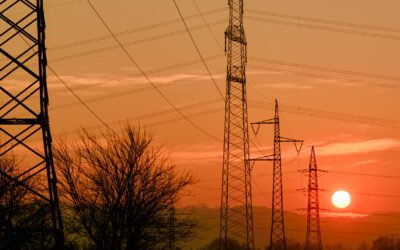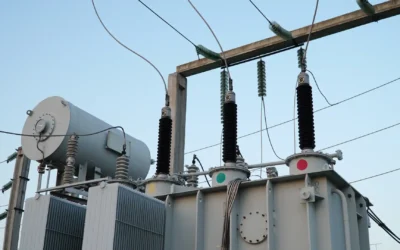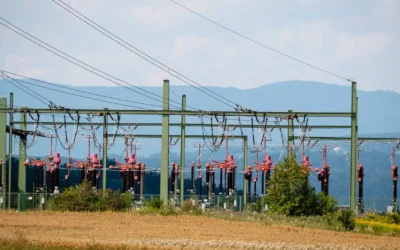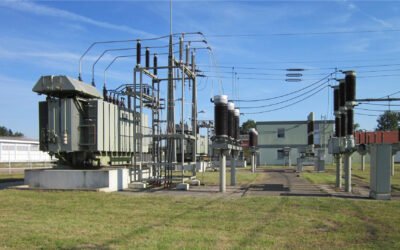Recently, I had the privilege to attend and present at the Greentech Festival, an excellent event in the realm of sustainability. This influential gathering left a profound impact, and I am delighted to share a comprehensive analysis of my experiences.
The Greentech Festival was a vibrant hub of activity, pulsating with the energy of engaged participants. With 14,000 visitors, 350 speakers across five stages, and 200 exhibitors, the event was a melting pot of diverse stakeholders, fostering an environment ripe for meaningful dialogue and collaboration.
A notable feature of the Greentech Festival was its exhaustive exploration of sustainability issues. The conference addressed a broad spectrum of sectors, including transportation, agriculture, energy efficiency, automation, and building infrastructure. Particularly commendable was the inclusion of discussions on sectors traditionally viewed as difficult to decarbonize due to technological and financial limitations, such as the aviation industry and building infrastructure. This inclusive approach underscored the necessity of a holistic strategy for achieving sustainability.
What distinguished the Greentech Festival was its emphasis on pragmatic solutions to existing challenges. The panels did not merely engage in high-level discourse; instead, they delved into specific bottlenecks related to financing, policy, and technology. This practical orientation provided attendees with actionable insights and strategies for overcoming current obstacles in the sustainability landscape.
The composition of the panels at the Greentech Festival was particularly noteworthy. They featured a balanced mix of experts from research, industry, and policy domains, ensuring a multidisciplinary perspective on each issue. This diversity facilitated richer discussions and more comprehensive analyses of sustainability challenges and opportunities. Coming from an energy background, the conference content illuminated how tunnel-visioned I had been regarding sustainability. It became evident that numerous sectors urgently require sustainable practices. Agriculture, in particular, stood out as an area significantly neglected over the years, where innovation and technology have been slow to permeate.
One of the strengths of this conference was its facilitation of critical debates on contentious topics such as carbon capture. These discussions are essential for advancing sustainability dialogues. The panelists and presenters did not shy away from presenting opposing viewpoints, thereby offering the audience a nuanced understanding of complex issues. For instance, debates scrutinized the viability and implications of carbon capture and storage, questioning whether it serves as a legitimate solution or merely prolongs the reliance on the oil and gas industry. Similarly, discussions on the pace of innovation in sustainable air travel and the dual impact of AI on sustainability were particularly enlightening.
Beyond the conference sessions, the event showcased a large number of exhibitors presenting innovative solutions. It was inspiring to see companies from various sectors demonstrating their commitment to sustainability through practical solutions. The Startup Land was an excellent initiative, highlighting brilliant concepts in sustainability. This area provided a platform for emerging startups to display their innovative ideas and technologies, further enriching the conference experience.

Key Takeaways
-
- The festival’s vibrant and engaged atmosphere was a catalyst for productive interactions and knowledge exchange.
- The comprehensive coverage of sustainability, including hard-to-decarbonize sectors, highlighted the need for an all-encompassing approach.
- The panels’ emphasis on real-world solutions to current bottlenecks in financing, policy, and technology provided valuable, actionable insights.
- The diverse mix of researchers, industry leaders, and policymakers enriched the discussions, offering well-rounded perspectives.
- The open debates on topics such as carbon capture and the role of AI contributed to a deeper understanding and critical evaluation of these issues.
Greentech Festival was an excellent event that provided a comprehensive and pragmatic examination of sustainability. The engaged atmosphere, extensive coverage, and focus on actionable solutions made it an invaluable experience. The diversity of perspectives and critical debates further enhanced the festival’s impact, fostering a deeper understanding of the complexities surrounding sustainability. I am eager to see how these discussions will influence future sustainability initiatives and drive meaningful progress.
Europe: +49-89-12250950
Americas: +1 408-604-0522
Japan: +81-80-7808-1378
GCC/Rest of APAC: +971-58-1602441
More About our: Services
Recent Insights
PTR Partners with ADIPEC as Official Media Partner
PTR Partners with ADIPEC as Official Media Partner SUNNYVALE, USA, February 24, 2026 - Power Technology Research (PTR), a global leader in energy and power market intelligence, is proud to announce its role as an Official Media Partner for ADIPEC, taking place...
PTR Partners with 3rd Net Zero MEA – Solar & Energy Storage 2026 as Official Media Partner
PTR Partners with 3rd Net Zero MEA – Solar & Energy Storage 2026 as Official Media Partner SUNNYVALE, USA, February 23, 2026 - Power Technology Research (PTR), a global leader in energy and power market intelligence, is pleased to announce its role as an Official...
Ops and Sales Support Associate
Department: Inertia Permanent Remote Inertia is PTR’s next-generation, community- and events-led platform designed to bring together utility leaders, technology providers, and key industry stakeholders through executive roundtables, industry conferences and forums, as...
US Elections: Consequences of a Second Trump Presidency for Energy Sector
The US is making strides to move away from fossil fuels and eventually decarbonize the energy sector. The White House aims to achieve 80% renewable energy generation by 2030 and 100% carbon-free electricity by 2035. On the other hand, for electric vehicles, it has set...
US Power Transformer Market Snapshot
US Power Transformer Market SnapshotMarket OverviewUSA to expand transmission systems by 60% by 2030 and may need to triple those systems by 2050.United States is replacement driven market. The expected growth in the Power Transformers market in the United States in...
Europe Distribution Transformer Market: Navigating Changing Energy Dynamics
Europe's transition to clean energy is driving growth in the distribution transformer market. The growth is fueled by integrating renewable energy sources like solar and wind and the expanding infrastructure for electric vehicle charging. Distribution transformers are...
Growing Energy Demand: A Catalyst for the Middle East Distribution Transformer Market
Several factors drive the Middle East’s energy demand. Rapid urbanization, substantial investments in infrastructure, industrialization, heightened emphasis on renewable energy (RE), and population growth are leading to an increased need for electricity. Distribution...



